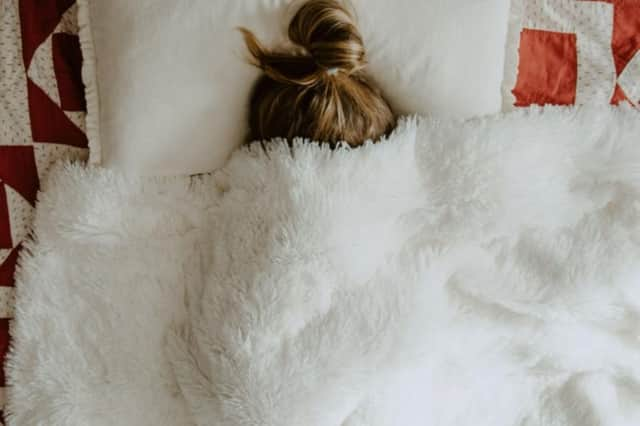You could be adding £800 to your energy bill by leaving the heating on overnight


According to calculations by Mattress Online, £8.96 is the extra cost of leaving the heating on overnight, based on an eight hour period. Do this every night over winter and it’s easy to see how the cost can spiral.
With the country anticipating lows of -7C this week, many of us will be tempted to crank up the thermostat and keep our home’s heating on around the clock. However, as annual energy bills are set to rise to £2,000 in 2022, saving money is a high priority for many.
Advertisement
Hide AdAdvertisement
Hide AdTo help, Mattress Online have shared their tips for staying warm throughout the night, without spending a penny more on your heating. Choose these simple swaps over heating your home at night for the rest of winter and save up to £663.04.
6 Tips for Staying Warm in Bed Without Putting The Heating On
Change your bedding & duvet
When the temperature drops, it’s worth swapping your duvet for one with a higher tog rating. The tog rating system tells you how warm your duvet is; the higher the rating, the more insulating it is. In winter, we recommend switching to a 13.5 tog duvet or higher to keep you warm. Likewise, consider switching your bedding. Brushed cotton or ‘teddy’ fleece sheets and duvet covers are warmer than your standard cotton bedding, making it the perfect choice for cold nights.
Use a hairdryer to warm your sheets
If the thought of getting into a cold bed fills you with dread, this simple hack can quickly warm your sheets before you slip under the duvet. Briefly blast your sheets with a hairdryer before you get in and enjoy a toasty warm bed.
Advertisement
Hide AdAdvertisement
Hide AdRemember to store the hairdryer safely away after use - don’t leave it on your bed!
Have a bath before bed
Around 90 minutes before you want to sleep, take a hot bath. Bathing helps to regulate our body temperature and activates the sleep hormone, melatonin. Timing it 90 minutes before bed means you won’t be too hot to fall asleep; you’ll be at the perfect temperature to drift off.
Cuddle up
If you sleep with a partner, move a little closer and share each other’s body heat. Snuggling in is a great way to stay warm. If you’re single, don’t worry; pets can act as great furry hot water bottles - as if you needed another excuse to cuddle your pooch!
Use a hot water bottle
Fill a hot water bottle with hot water (not boiling) and place it in your bed. Position it wherever you need it but we recommend using it to keep your feet warm.
Advertisement
Hide AdAdvertisement
Hide AdBelieve it or not, your feet play a large part in regulating your body temperature. If your feet are warm, your body will start warming up too. If you don’t want to use a hot water bottle, wear a pair of lightweight socks instead.
Have a hot drink
“Have a hot drink, it will warm you up” is probably something you’ve heard before. It’s true, having a hot drink before bed will temporarily create a warm feeling, but it won’t keep us feeling warm all night. However, this temporary warmth and the sleepy feeling created by drinking hot drinks can help you slip into slumber.
Annaliese Curtis, a sleep expert from Mattress Online, said: “Trying to sleep in colder conditions is tricky; our minds are so preoccupied with feeling cold that it becomes even more difficult to switch off.
"The longer it takes us to fall asleep, the less time we have before the alarm goes off, meaning we could feel sleepy, less alert and more irritable the next day. As households try to reduce their energy spend this winter, it’s good to be aware of alternative and effective options for staying warm at home, without adding extra pounds to your household bills.
"After all, the ideal bedroom temperature for sleep is between 16-18°C (60-65°F), so there’s no need for our boilers to work overtime through the night!”